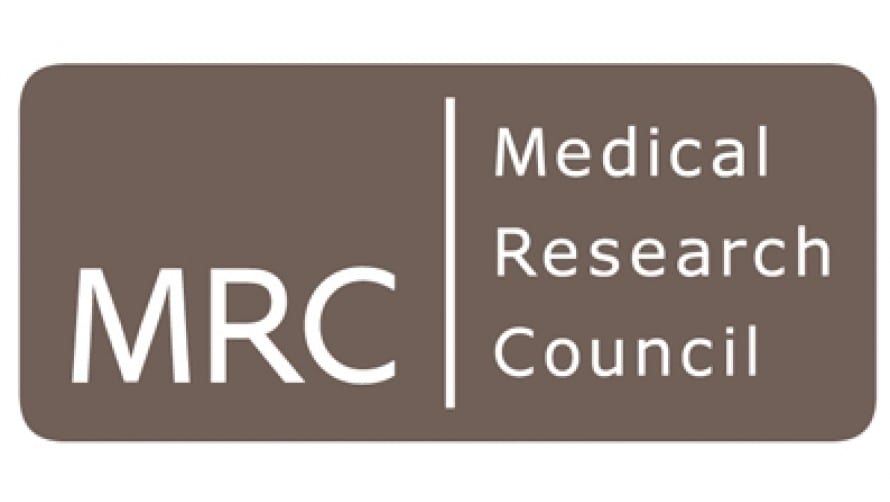Inequities in support for relatives bereaved by psychiatric patient suicide
By rejualp, on 24 April 2017
 2017 has already been a busy year for mental health policy announcements. On 9th January the Prime Minister announced a package of measures to transform mental health support, highlighting the “shocking reality” of 13 deaths by suicide a day in England. On the same day the Department of Health published a progress update on the suicide prevention strategy, setting out an intention to improve responses to people bereaved by suicide. This had been one of the two overarching objectives of the revised 2012 suicide prevention strategy, but three years on the progress report acknowledged that “delivery in this area has not progressed enough to ensure that there are good quality and consistent suicide bereavement services in every area across the country”.
2017 has already been a busy year for mental health policy announcements. On 9th January the Prime Minister announced a package of measures to transform mental health support, highlighting the “shocking reality” of 13 deaths by suicide a day in England. On the same day the Department of Health published a progress update on the suicide prevention strategy, setting out an intention to improve responses to people bereaved by suicide. This had been one of the two overarching objectives of the revised 2012 suicide prevention strategy, but three years on the progress report acknowledged that “delivery in this area has not progressed enough to ensure that there are good quality and consistent suicide bereavement services in every area across the country”.
These pronouncements on service provision after suicide bereavement have direct relevance to NHS mental health trusts. The recent 20 year review of the National Confidential Inquiry into Suicide and Homicide by People with Mental Illness reported that 18,172 psychiatric patients in the UK had died by suicide over the period 2004 to 2014, representing 28% of general population suicides. The MRC-funded systematic review we conducted in the UCL Division of Psychiatry has described the effects of suicide bereavement on mental health and suicide risk, and there is a growing awareness that each suicide has an impact on relatives, partners, friends, and mental health professionals. Guidelines set down in 2009 by the National Patient Safety Agency indicate that after the suicide of a psychiatric patient, mental health teams should offer families and carers “prompt and open information” and “appropriate and effective support” as well as involving them in a routine post-suicide review. Until now it has not been clear how often this happens in practice.
 This month our analysis of National Confidential Inquiry data, in collaboration with the NCISH team at the University of Manchester, was published in the US journal Psychiatric Services. This found that relatives of psychiatric patients who died by suicide from 2003 to 2012 were not contacted after the death by members of the mental health team in 33% of cases. In our analysis we had hypothesised that specific, potentially stigmatizing, patient characteristics would influence whether the family was contacted after a psychiatric patient’s suicide. We found that a patient’s forensic history, unemployment, and primary diagnosis of alcohol or drug dependence or misuse were independently associated with a reduced likelihood of staff contacting the relatives in the event of their suicide. We noted that these were markers for suicide risk in themselves. However, minority ethnic group, and recent alcohol or drug misuse were not associated with staff contacting relatives. Violent method of suicide was associated with an increased likelihood of being contacted.
This month our analysis of National Confidential Inquiry data, in collaboration with the NCISH team at the University of Manchester, was published in the US journal Psychiatric Services. This found that relatives of psychiatric patients who died by suicide from 2003 to 2012 were not contacted after the death by members of the mental health team in 33% of cases. In our analysis we had hypothesised that specific, potentially stigmatizing, patient characteristics would influence whether the family was contacted after a psychiatric patient’s suicide. We found that a patient’s forensic history, unemployment, and primary diagnosis of alcohol or drug dependence or misuse were independently associated with a reduced likelihood of staff contacting the relatives in the event of their suicide. We noted that these were markers for suicide risk in themselves. However, minority ethnic group, and recent alcohol or drug misuse were not associated with staff contacting relatives. Violent method of suicide was associated with an increased likelihood of being contacted.
We felt these findings suggested that relatives experience inequities in access to support after a potentially traumatic bereavement. This was a concern given the recognised association of suicide bereavement with suicide attempt, and the possibility that patients’ relatives share risk factors for suicide. Mental health trusts should use these findings to revise their policies on serious and untoward incidents; incorporating protocols for the provision of support to relatives and to trust employees after a patient’s suicide. Considering the impact on fellow patients, whether on wards or in social networks, is also important. Resources such as Help is at Hand, published by Public Health England in 2015, list organisations providing support and information and should be disseminated where indicated. Recent commissioning guidance published by Public Health England makes recommendations, informed by our research, on delivering support after a suicide as part of a wider suicide prevention strategy.
I am grateful to Isabelle Hunt, Sharon McDonnell, Louis Appleby and Nav Kapur at NCISH for agreeing to this collaboration. We presented the findings at the RCPsych General Adult Psychiatry and Child and Adolescent Psychiatry joint faculties’ annual conference in Birmingham in October 2016, which was an opportunity to disseminate the findings to clinicians. Onwards dissemination to mental health staff and clinical leaders has the potential to improve the support offered to people bereaved by suicide, in keeping with national suicide prevention strategy.
 Click this link to access the article.
Click this link to access the article.
Citation
- Pitman A, Hunt I, McDonnell S, Appleby L, Kapur N. (2017) Support for Relatives Bereaved by Psychiatric Patient Suicide: National Confidential Inquiry Into Suicide and Homicide Findings Psychiatric Services 68(4); 337-344 doi: http://dx.doi.org/10.1176/appi.ps.201600004
References
- Department of Health. (2012) Preventing suicide in England: A cross-government outcomes strategy to save lives. 17680.
- The National Confidential Inquiry into Suicide and Homicide by People with Mental Illness. Making Mental Health Care Safer. Annual Report and 20-year Review, October 2016. University of Manchester. http://research.bmh.manchester.ac.uk/cmhs/research/centreforsuicideprevention/nci/reports/2016-report.pdf
- National Patient Safety Agency. (2009) Preventing suicide: a toolkit for mental health services. National Patient Safety Agency. Contract No.: 1133.
- Pitman A. Osborn D. King M. Erlangsen A. (2014) Effects of suicide bereavement on mental health and suicide risk The Lancet Psychiatry, 1(1): 86-94 doi:10.1016/S2215-0366(14)70224-X http://www.thelancet.com/journals/lanpsy/article/PIIS2215-0366(14)70224-X/fulltext
- Pitman A, Hunt I, McDonnell S, Appleby L, Kapur N. (2017) Support for Relatives Bereaved by Psychiatric Patient Suicide: National Confidential Inquiry Into Suicide and Homicide Findings Psychiatric Services 68(4); 337-344 doi: http://dx.doi.org/10.1176/appi.ps.201600004 http://ps.psychiatryonline.org/doi/full/10.1176/appi.ps.201600004
- Public Health England, National Suicide Prevention Alliance. (2015) Help is at Hand: Support after someone may have died by suicide. London, HMSO.
- Public Health England (2017) Support after a suicide: a guide to providing local services. https://www.gov.uk/government/publications/support-after-a-suicide-a-guide-to-providing-local-services PHE publications gateway number: 2016392
 Close
Close


 Research from the
Research from the  xandra Pitman, Prof David Osborn and Prof Michael King (UCL Psychiatry), funded by the Medical Research Council, has found that people bereaved by the suicide of a friend or relative have a greater probability of suicide attempt than those bereaved by the sudden natural death of a close contact.
xandra Pitman, Prof David Osborn and Prof Michael King (UCL Psychiatry), funded by the Medical Research Council, has found that people bereaved by the suicide of a friend or relative have a greater probability of suicide attempt than those bereaved by the sudden natural death of a close contact. The team analysed data from a national sample of over 3,400 adults aged 18-40 who had experienced the sudden death of a close contact. Of this sample, 31% had experienced a depressive episode since the bereavement, and 6% reporting having had to drop out from a course or job. Almost half (45%) the sample reported suicidal thoughts since the bereavement, and 6% had made a suicide attempt since the loss. To give a rough comparison with the general population in England, the 2007 Adult Psychiatric Morbidity Survey had shown that up to 21% of people in the equivalent age group had ever had suicidal thoughts in their life, and 7% had ever attempted suicide in their life. The UCL study figures of 45% and 6%, respectively, only related to the period since the bereavement – an average of only 4 years.
The team analysed data from a national sample of over 3,400 adults aged 18-40 who had experienced the sudden death of a close contact. Of this sample, 31% had experienced a depressive episode since the bereavement, and 6% reporting having had to drop out from a course or job. Almost half (45%) the sample reported suicidal thoughts since the bereavement, and 6% had made a suicide attempt since the loss. To give a rough comparison with the general population in England, the 2007 Adult Psychiatric Morbidity Survey had shown that up to 21% of people in the equivalent age group had ever had suicidal thoughts in their life, and 7% had ever attempted suicide in their life. The UCL study figures of 45% and 6%, respectively, only related to the period since the bereavement – an average of only 4 years.
 UCL Psychiatry’s
UCL Psychiatry’s 

